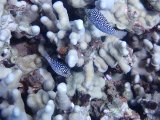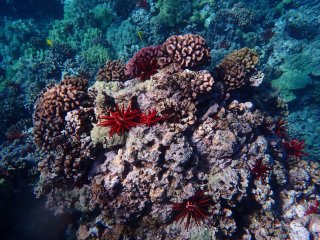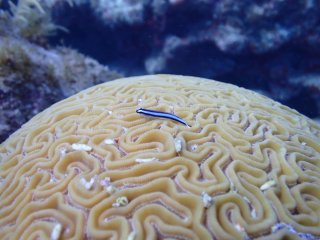UV Filters in Sunscreens and Aquatic Environmental Health

Healthy aquatic environments – both salt and freshwater– benefit humans and ecosystems in many ways. Oceans can regulate climate and weather patterns and are important for recreation and food. They also create resources and jobs for local communities. The health of waterbodies around the world is declining in response to multiple anthropogenic aquatic stressors, such as rising water temperatures, pollution, ocean acidification, habitat destruction, biodiversity loss, and extreme weather events.

UV Filters in Sunscreens
The ultraviolet (UV) filters used in sunscreens are an emerging contaminant of possible concern for aquatic environments. Certain chemicals are used in sunscreens and other cosmetics to absorb or block UV radiation from the sun, and some of these filters can potentially persist and accumulate in aquatic ecosystems. These UV filters can enter the environment through wastewater (from bathing) or as they are washed off during recreational activities. The chemicals are found worldwide in water and sediment samples, as well as in many animals, from crayfish to dolphins. The environmental impacts of UV filters on aquatic ecosystems are not fully understood and further assessment is necessary.

EPA Research on UV Filters in Sunscreen
EPA scientists are working to understand how these filters impact aquatic organisms, with a focus on coral reefs.
Researchers are developing analytical methods for measuring concentrations of UV filters in seawater and conducting research to understand how aquatic organisms may be impacted by exposure to UV filters used in sunscreens. More research on the topic of UV filters is needed worldwide to develop a comprehensive understanding of the issue. A recent report released by the National Academies of Sciences, Engineering, and Medicine (NASEM) underscores the need for a greater understanding of this topic and a more robust research approach.
EPA announced a Notice of Intent for Ecological Risk and Impact of UV Filters in Sunscreens on Aquatic Ecosystems research. This funding opportunity will solicit proposals for research measuring the effects of UV filters on freshwater and marine organisms, advancements in analytical methods to detect and quantify UV filters in saltwater, and the development of innovative metrics and modeling approaches to support evaluation of ecological risk and inform sustainable risk-based decisions.
Additionally, EPA scientists will be co-hosting sessions related to these topics at the Society of Environmental Toxicology and Chemistry (SETAC) North American 45th Annual Meeting, on October 20-24, 2024 in Fort Worth, Texas.
Learn More About the Science
- NASEM Report: Review of Fate, Exposure, and Effects of Sunscreens in Aquatic Environments and Implications for Sunscreen Usage and Human Health
- Press Release: National Academies of Sciences, Engineering, and Medicine
- Human Dimensions of Water Quality Research
- Advanced Ambient Water Quality Research
- Watersheds Research
- Wastewater Contaminants Research
- Publications on UV Filters in Sunscreens
